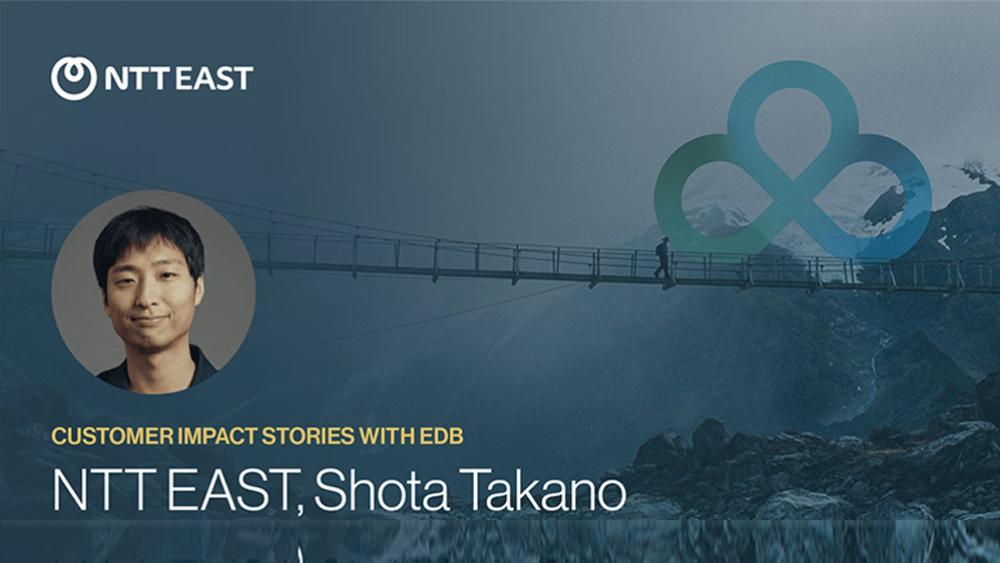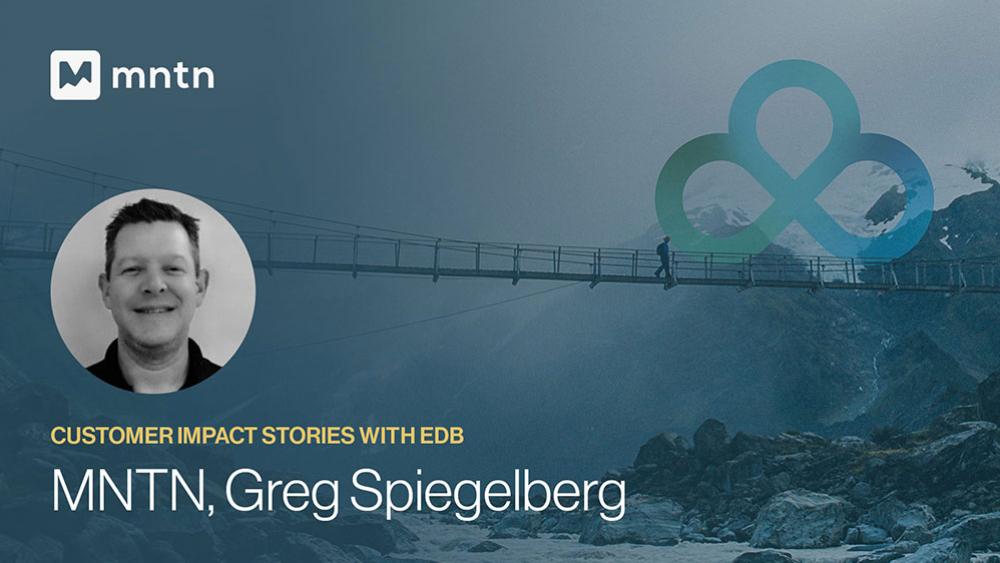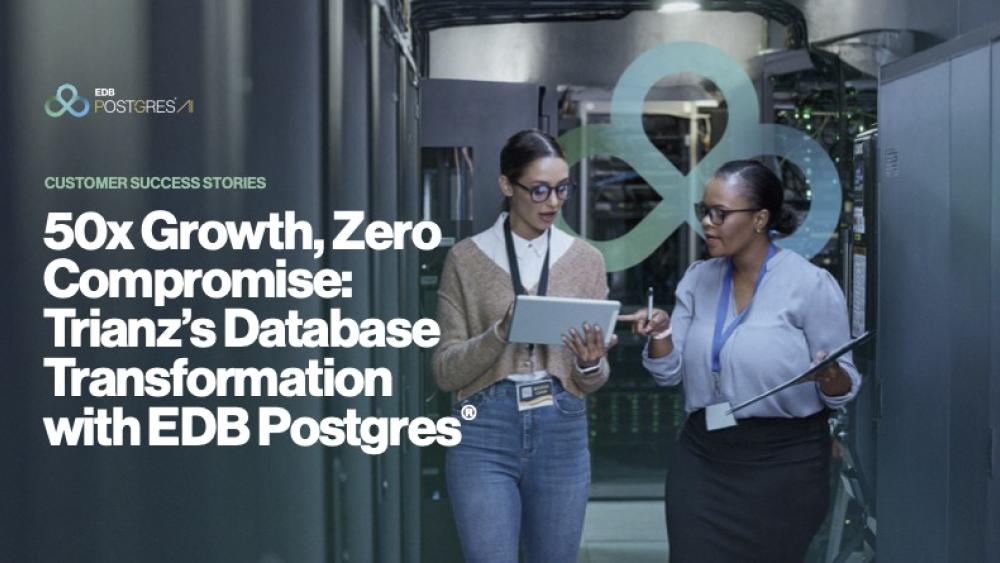Agency for Restructuring and Modernization of Agriculture (ARMA) Uses EDB to Improve Availability of Critical Beneficiary Support Systems
The Polish Agency for Restructuring and Modernization of Agriculture (ARMA) was established in 1994 with a mission to support the development of agriculture and rural areas in Poland. ARMA is an accredited paying agency, responsible both for the distribution of funds available under the EU’s common agricultural policy (CAP) as well as for aiding the Polish agriculture using the country’s own public funds. The Agency is composed of 16 regional and 314 local offices and employs approximately 12,000 staff in total. The main beneficiaries of ARMA’s activities are farmers, inhabitants of rural areas, agricultural producers’ organizations, businesses, and local authorities.
ARMA is responsible for smooth processing of subsidy requests submitted by prospective beneficiaries. In order to achieve this, the Agency needed to ensure high availability of database servers and applications in the busiest request submission periods. Moreover, in recent years, more and more applicants have chosen to communicate with the Agency electronically and submitted their requests online. In 2018, the number of such applicants was 900,000, which accounted for 69% of all requests submitted—whereas in 2020, their share rose to 1.1 million (82%).
The Challenge
Thousands of the Agency’s office workers and hundreds of thousands of its customers who apply for funding online generate an immense demand for system performance. While database server load can be easily predicted if subsidy requests are exclusively accepted at local offices, this becomes an extremely difficult task in a scenario where these are submitted online and the number of concurrent sessions can fluctuate significantly (and sometimes unexpectedly) over time—bogging down systems temporarily and even potentially putting them to a halt, making them unavailable. Therefore, the challenge was to ensure acceptable performance, regardless of the number of concurrent users.
The Solution
This issue was resolved by implementing application containerization, which enabled boosting performance quickly whenever the demand for computing resources surges, and releasing resources flexibly the very moment it disappears. This was the solution used in eWniosekPlus, an application for online submission of subsidy requests. Its key pillars are the EDB Postgres Advanced database, which works seamlessly with containerized applications, and PostGIS, a module which supports digital maps and processes geographic (GIS) data.
The Results
- Faster application development
- Better availability of database servers by introducing demand-based scalability of their computing power
- Improved reliability – fewer errors and faults
- Speedier issue resolution thanks to the local availability of support services provided by Linux Polska
- Smaller capital expenditure risk due to guaranteed proper maintenance and continued development ensured by the broad developer community
- Reduced legal risk as a result of clear licensing rules.
Plans to expand and enhance open source and PostgreSQL implementation
The Agency had used the community version of the PostgreSQL database earlier and has been gradually expanding the scope of its use. The first EDB applications were deployed in 2014 and 2015, due to the Agency’s deliberate decision to follow the roadmap of its IT development, relying on open source solutions. The following years included preparations for broader implementation of the software to make the best use of its strengths. Employee training, assistance in architecture planning, and technical support delivered by Linux Polska helped ARMA prepare the stage properly, and facilitated the process of adoption of the technology and execution of new projects that could now be fully based on EDB.
EDB Postgres Advanced ensures high availability of critical systems used to support the Agency’s beneficiaries
In order to ensure full 24/7 support, EDB Postgres Advanced, which additionally incorporates more advanced features and additional database monitoring, management, and migration utilities was deployed. Today, EDB Postgres Advanced runs in the environment that supports the Agency’s core applications.
“The most frequently quoted reasons for decisions to implement new open database solutions include a need to deliver applications faster and to upgrade them. When a system whose database uses hundreds of CPUs grows, the associated costs generated by a conventional vendor of closed solutions is bound to become unacceptably high at a certain point. In addition, every organization that adopts a system of critical importance has to make sure it comes with state-of-the-art support. These are the reasons why customers choose EDB solutions – they guarantee operational stability and reliability as well as availability of advice and support both from their vendor and from a network of partners”, says Mr Dariusz Świąder, CEO, Linux Polska.
Scalability and high availability are critical to the operations of a paying agency
The objectives of the Agency are clearly defined as being able to accept and validate each request quickly and without errors, and then release the awarded funds to the beneficiaries. All requests must be processed within a strictly defined time frame. Thousands of ARMA staff verify and review the requests received, and then they run payment transactions for those approved. At present, more than a million beneficiaries file their requests with the Agency online. On top of that, the solution must be able to work seamlessly with a GIS module to be able to identify the plots of land referred to in each request on digital maps. All those processes together place significant load on the servers.
Yet even during such peaks, the system has to remain fully available (24/7) and maintain the required performance metrics, i.e. the processing speed, absence of errors and the correctness of write and read operations. In order to meet those requirements, the system – both the application and the database – has to be dynamically scalable. To achieve this, the solutions implemented at ARMA included application containerization and a deployment of a powerful, resilient and scalable database, which in this case was the EDB Postgres Advanced.
“The most essential requirement the Agency has always put forward is that its IT Department be effective and successful in supporting the Agency in pursuing its statutory objectives. We are the largest paying agency in Europe. During the last 25 years we aided over 2 million beneficiaries with a total of more than 200 bn Polish zloty. What we require of vendors of IT solutions is that they ensure availability and performance of our systems. Based on the long years of our experience we can now say that a skillful implementation of open source database solutions can successfully satisfy our critical requirements, and it allows us to optimize costs. Finally, it reduces the risk of our becoming dependent on a single vendor, as it can be the case with old-style proprietary software,” says Mr Mariusz Głębocki, Head of the IT Department, ARMA.
“Thanks to EDB solutions, we have been able to provide ARMA with the same features as those offered by traditional proprietary—or “closed”—solutions, including professional enterprise level support services, at a much lower price,” explains Mr Grzegorz Sułkowski, Vice-President, Linux Polska.
Faster development and easier application maintenance
Speaking of application maintenance and development, it is extremely convenient that PostgreSQL databases use the plain vanilla SQL. It makes it much easier to find competent administrators and developers and shortens the time needed to make them familiar with the project.
There are also some additional utilities included in EDB that are highly useful to administrators in their work, aiding them in their monitoring, management, data backup and recovery tasks.
Key role of Linux Polska and EDB support services
The smooth adoption of PostgreSQL technologies would not be possible if it had not been for the technical and project execution support provided by Linux Polska and EDB engineers. Another benefit that cannot be underestimated was the knowledge transfer, which had the form of certified training courses and hands-on workshops. Linux Polska continues to assist the Agency in resolving ongoing technical issues and advises it in planning the further development of its database infrastructure.
“Thanks to the excellent collaboration with ARMA's IT team, the EDB implementation project can be considered a model to look up to for other organizations. In fact, it was a project unique not only in Poland but in Europe too. The deliverables of each stage of the technology adoption process were verified both in their business and technological aspects. Jointly with Linux Polska, we prepared pilot implementation projects as well as training courses for administrators and developers. Our collaboration resulted in the success of the database projects in spite of the truly demanding environment,” says Greg Bogochwalski, Regional Director, Emerging Markets, EDB.
“Not only did the training, including the workshops delivered by Linux Polska, help us in adopting the EDB technology and improve the competence level of our teams but it also helped us change our mindset regarding the potential of open source solutions,” says Mariusz Głębocki, Head of the IT Department, ARMA.
Want to see more? Read our EDB partner and customer stories here.



